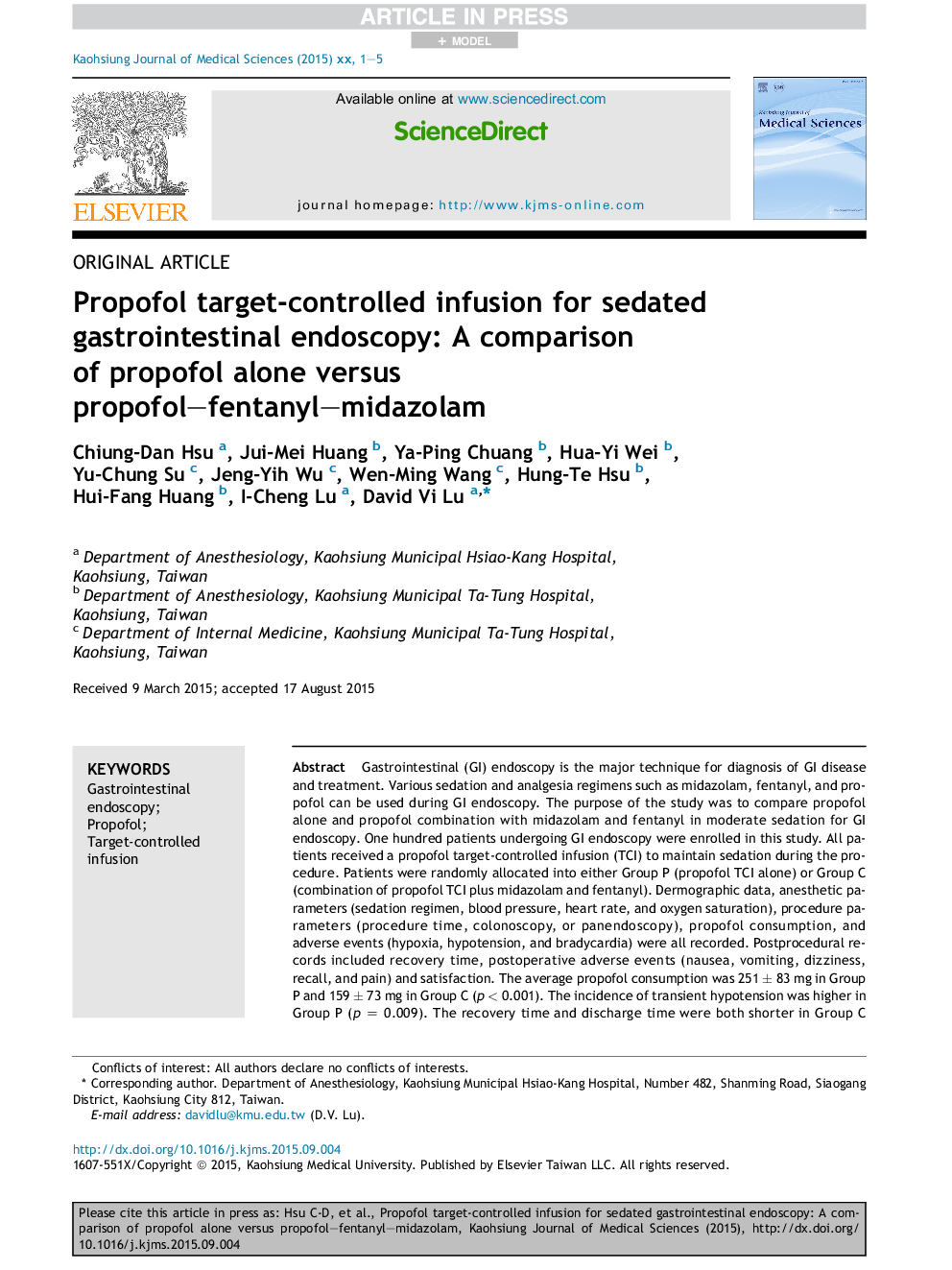| Article ID | Journal | Published Year | Pages | File Type |
|---|---|---|---|---|
| 6151922 | The Kaohsiung Journal of Medical Sciences | 2015 | 5 Pages |
Abstract
Gastrointestinal (GI) endoscopy is the major technique for diagnosis of GI disease and treatment. Various sedation and analgesia regimens such as midazolam, fentanyl, and propofol can be used during GI endoscopy. The purpose of the study was to compare propofol alone and propofol combination with midazolam and fentanyl in moderate sedation for GI endoscopy. One hundred patients undergoing GI endoscopy were enrolled in this study. All patients received a propofol target-controlled infusion (TCI) to maintain sedation during the procedure. Patients were randomly allocated into either Group P (propofol TCI alone) or Group C (combination of propofol TCI plus midazolam and fentanyl). Dermographic data, anesthetic parameters (sedation regimen, blood pressure, heart rate, and oxygen saturation), procedure parameters (procedure time, colonoscopy, or panendoscopy), propofol consumption, and adverse events (hypoxia, hypotension, and bradycardia) were all recorded. Postprocedural records included recovery time, postoperative adverse events (nausea, vomiting, dizziness, recall, and pain) and satisfaction. The average propofol consumption was 251 ± 83 mg in Group P and 159 ± 73 mg in Group C (p < 0.001). The incidence of transient hypotension was higher in Group P (p = 0.009). The recovery time and discharge time were both shorter in Group C (p < 0.001 and p = 0.006 respectively). Overall, postprocedural adverse events were similar in both groups. The postanesthetic satisfaction was comparable in both groups. TCI of propofol combined with midazolam and fentanyl achieved sedation with fewer hypotension episodes and shorter recovery and discharge time than propofol TCI alone in patients undergoing GI endoscopy.
Related Topics
Health Sciences
Medicine and Dentistry
Medicine and Dentistry (General)
Authors
Chiung-Dan Hsu, Jui-Mei Huang, Ya-Ping Chuang, Hua-Yi Wei, Yu-Chung Su, Jeng-Yih Wu, Wen-Ming Wang, Hung-Te Hsu, Hui-Fang Huang, I-Cheng Lu, David Vi Lu,
